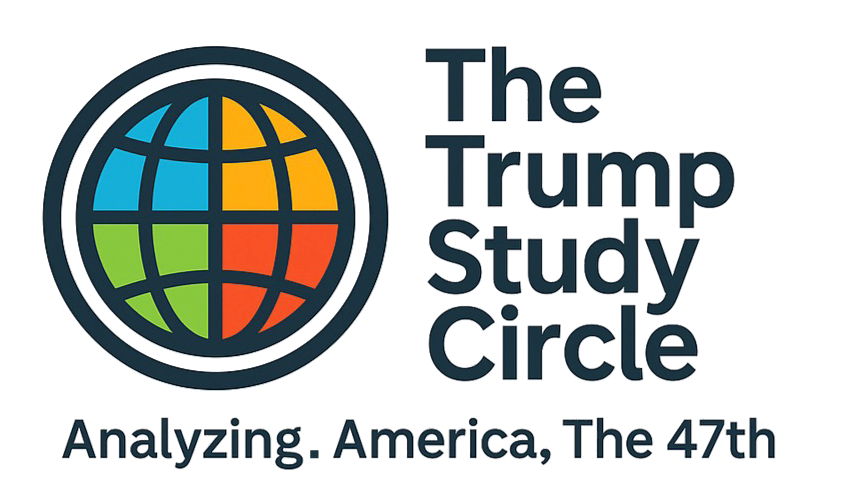What once felt improbable has now become the new normal.
The world is not simply evolving. It is being deconstructed and reconstructed—not through deliberative design, but through unpredictable disruption. The carefully crafted global order that emerged in the aftermath of World War II, and matured during the Cold War and the era of unipolar American dominance, is being dismantled from both inside and outside its power centers.
America in Flux
The internal crises of the United States are no longer confined to policy disputes—they are existential in nature. Recent tensions between Donald Trump and California Governor Gavin Newsom, framed in terms of potential arrest over immigration issues, point to a serious erosion of federal coherence. Add to this the visible deployment of military forces in response to domestic protests, and we see a picture of a democracy straining under the weight of its contradictions.
Compounding this is the widening rift among American elites. The feud between Trump and Elon Musk is symbolic: on one side, the populist-nationalist establishment; on the other, a transnational technocrat who commands influence over space infrastructure, electric vehicles, artificial intelligence, and the digital public square. These are not merely personality clashes—they reveal a deeper contest over the very direction of American power.
Africa Speaks on Its Own Terms
In a startling shift, voices from Africa—once silenced or ignored on the world stage—are now confronting the West with unfiltered candor. Ibrahim Traoré, the young military leader of Burkina Faso, has directly challenged Donald Trump and named former U.S. official Kash Patel in a widely circulated speech. This is unprecedented in its boldness and indicative of a continent reclaiming agency after centuries of geopolitical marginalisation.
The recent anti-Western sentiment seen across the Sahel, particularly with the removal of French troops and diplomats, is not an isolated trend. It represents a broader move towards self-determination and an emergent Pan-African identity that no longer defers to former colonial powers or Cold War-era alliances.
The Ideals That No Longer Hold
Even within the Western world, faith in long-standing democratic norms appears to be faltering. Karoline Leavitt, former press secretary to Donald Trump, recently remarked, “America is changing too fast.” Her statement underscores an unease about the rapid pace of cultural, political, and technological transformation.
This sentiment is not limited to conservative circles. Across political lines, there is growing anxiety about institutional decline, information disorder, and a pervasive sense that no one—neither elected leaders nor billionaires—can be fully trusted to safeguard the public good.
Global Power: Multipolar, Not Moral
The assumption that the world is sliding into a new Cold War—this time between the United States and China/Russia—oversimplifies a far more fragmented reality. The rise of regional powers like India, Turkey, Iran, Brazil, and even African states has given rise to a multipolar system without clear moral anchors.
Global institutions that once claimed to speak for humanity—whether the United Nations, NATO, or the World Bank—are increasingly seen as compromised or irrelevant by those outside the traditional Western orbit. Meanwhile, alternative coalitions such as BRICS+, the Shanghai Cooperation Organisation, and African regional blocs are challenging the narrative of a “rules-based international order” historically written in Washington and Brussels.
A Crisis of Explanation
Perhaps the most profound aspect of today’s transformation is that even the storytellers seem confused. Conflicts like those in Ukraine, Gaza, the Sahel, and the Taiwan Strait are presented through deeply partisan lenses, with few shared facts and fewer shared conclusions. Conspiracy theories, AI-generated content, media distrust, and geopolitical opacity make truth itself a casualty.
People across the globe—regardless of their nation or ideology—are increasingly asking:
- Who really holds power in the 21st century?
- Why are democratic norms collapsing even in their birthplace?
- What future are we being prepared for, if any?
Conclusion: The World Without a Blueprint
We are not witnessing a controlled redesign of global systems. What we are seeing is a reconstruction under pressure—led not by visionary architects but by competing interest groups, accidental disruptors, and disillusioned populations.
There is no Marshall Plan this time, no Bretton Woods, no universal doctrine guiding the way forward. The old world order, built on American primacy, Western liberalism, and post-colonial bargains, is quietly fading.
The world is not being redesigned. It is being reconstructed—amid unrest, disinformation, broken alliances, and rising uncertainty. And for the first time in over a century, no one—not even the most powerful—can predict what comes next.
